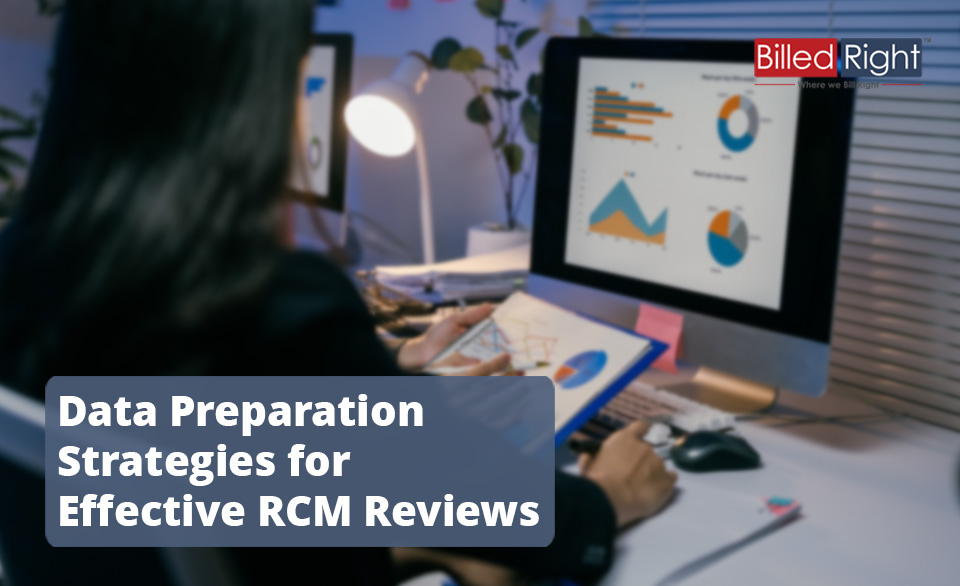Data Preparation Strategies for Effective RCM Reviews

Understanding the Importance of Data Preparation for RCM Reviews
Data preparation plays a pivotal role in Revenue Cycle Management (RCM) reviews for healthcare professionals. With the right strategies, data preparation can enhance the effectiveness of these reviews, ultimately leading to better financial management.
Why Data Preparation is Crucial for RCM Reviews
The process of preparing data for RCM reviews is essential for achieving accurate analyses and actionable insights. Without proper data preparation, the review process can become ineffective and may lead to costly errors or missed opportunities. Key reasons for focusing on data preparation include:
- Accuracy of Financial Insights: Well-prepared data yields more reliable financial insights, enabling better decision-making.
- Streamlined Review Processes: Organized and validated data allows for a smoother review process, saving time and resources.
- Enhanced Compliance: Proper data preparation helps ensure that financial reporting adheres to regulations and guidelines, reducing the risk of audits and penalties.
| Benefit | Description |
|---|---|
| Improved Decision-Making | Reliable data leads to sound strategic choices. |
| Time Efficiency | Organized data reduces the time spent on analysis. |
| Risk Mitigation | Prepares the organization for audits and regulatory compliance. |
Impact of Well-Prepared Data on Revenue Cycle Optimization
The impact of effective data preparation extends beyond just the review process; it directly influences revenue cycle optimization. Organizations that invest in robust data preparation tactics often experience notable improvements in their financial performance. Key impacts include:
-
Identification of Revenue Gaps: Well-prepared data allows for deeper analysis, which helps identify revenue gaps and trends. This enables organizations to make necessary adjustments and improve their cash flow.
-
Performance Tracking: Accurate data facilitates tracking of key metrics that are critical to revenue cycle performance.
-
Strategic Adjustments: Organizations can use insight gained from thoroughly prepared data to adjust strategies effectively.
Investing time and resources into data preparation for RCM reviews not only strengthens the review process but also enhances overall financial health, leading to sustainable growth in the healthcare sector.
Data Preparation Tactics for Effective RCM Reviews
In the realm of Revenue Cycle Management (RCM), effective data preparation is foundational. Healthcare professionals must adopt specific tactics to ensure data is organized and actionable for reviews. Below are key methodologies that can improve the quality and utility of financial data during RCM reviews.
Organizing Financial Data
Proper organization of financial data is essential for clear and effective RCM reviews. This step involves categorizing data into coherent segments, such as patient demographics, billing information, and payment history. Organizing data ensures that stakeholders can easily access and analyze the information they need.
One effective method is to create data hierarchies, separating data into different levels of details, such as:
| Data Category | Examples |
|---|---|
| Patient Information | Name, Age, Insurance Provider |
| Billing Data | Procedure Codes, Charges, Payments |
| Payment History | Payment Dates, Amounts, Methods |
Employing consistent naming conventions and file structures aids in streamlining the organization process.
Cleaning and Validating Data
Cleaning and validating financial data is vital to ensuring its accuracy. This process involves removing duplicates, correcting errors, and filling in missing values. A well-maintained dataset helps healthcare professionals make informed decisions during RCM reviews.
Here are some common practices for data cleaning:
| Task | Description |
|---|---|
| Identify Duplicates | Use automated tools or manual checks to find duplicates. |
| Correct Inaccuracies | Regularly update data entries for accuracy. |
| Fill Missing Values | Use mean or median for numerical fields, and mode for categorical data. |
Regularly validating data against reliable sources minimizes risks of misinformation. Strengthening data integrity ultimately enhances decision-making capabilities during the review process.
Utilizing Data Analytics Tools for Insightful Analysis
Data analytics tools play a crucial role in facilitating insightful analysis during RCM reviews. Utilizing these tools helps healthcare professionals identify trends, measure performance metrics, and uncover areas needing improvement. Different types of tools can be employed based on the specific needs of the healthcare practice:
| Tool Type | Purpose |
|---|---|
| Reporting Tools | Generate insights through visualization of key metrics |
| Analytical Software | Perform statistical analysis on financial data |
| Benchmarking Tools | Compare data against industry standards |
Investing in technology tools for RCM performance reviews enables data-driven strategies that can optimize revenue cycles.
Implementing these data preparation tactics effectively forms the backbone of successful RCM reviews, facilitating better decision-making and financial management within healthcare settings.






